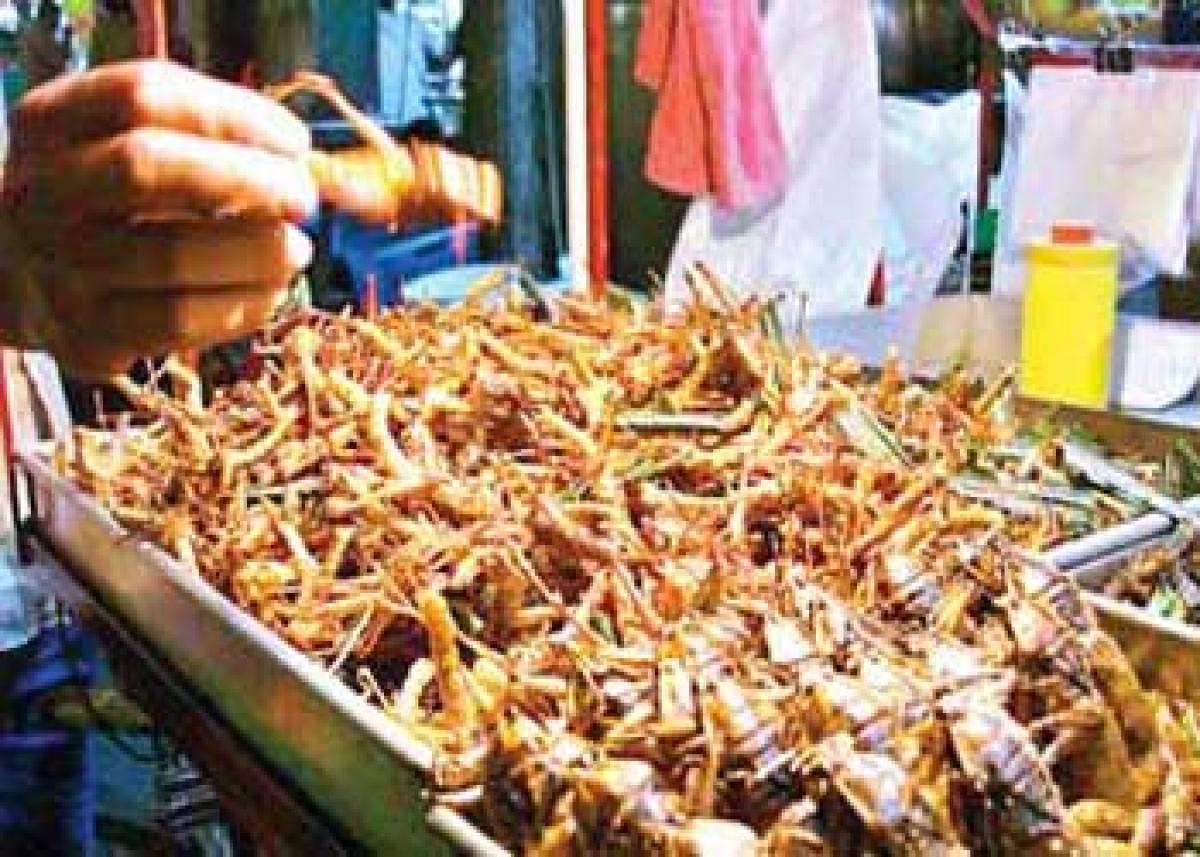Live
- India vs Australia: Third Test at Gabba – Match Timings and Details
- Allu Arjun’s team denies arrest rumors; gives clarity
- Film actor Mohan Babu knocks High Court doors. Requests for anticipatory bail
- Allu Arjun Seeks Lunch Motion; Court Hearing Scheduled for 2 PM Today
- Vijayawada hosts Swarnandhra Vision-2047 Program to foster development in AP
- World Bank okays loan for new project to boost earnings of UP farmers
- Zomato gets GST tax demand notice of Rs 803 crore
- Atul Subhash suicide: No arrests made yet, says Bengaluru Police Commissioner
- Indian agrochemicals sector to see 7-9 pc growth next fiscal: Report
- SC refers to CJI Cong leader’s petition for verification of EVMs used in Haryana polls





 Brussels : Houseflies, crickets and silkworms can be safe, nutritious and more environmentally friendly alternatives to chicken, beef or pork, research carried out for the European Commission (EC) finds. Still, they are less likely to be found on European restaurant menus than in animal feed, carefully controlled to prevent the kind of prions, or abnormal proteins, blamed for mad cow disease.
Brussels : Houseflies, crickets and silkworms can be safe, nutritious and more environmentally friendly alternatives to chicken, beef or pork, research carried out for the European Commission (EC) finds. Still, they are less likely to be found on European restaurant menus than in animal feed, carefully controlled to prevent the kind of prions, or abnormal proteins, blamed for mad cow disease.



